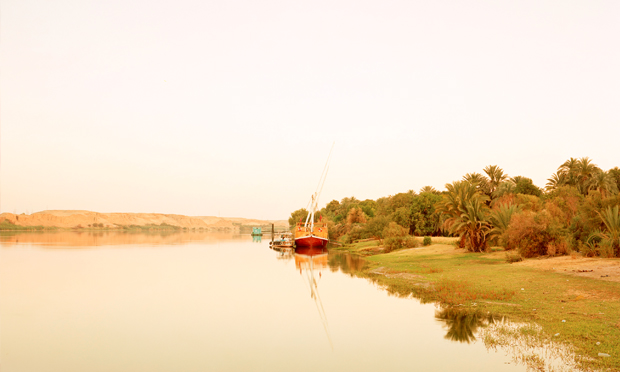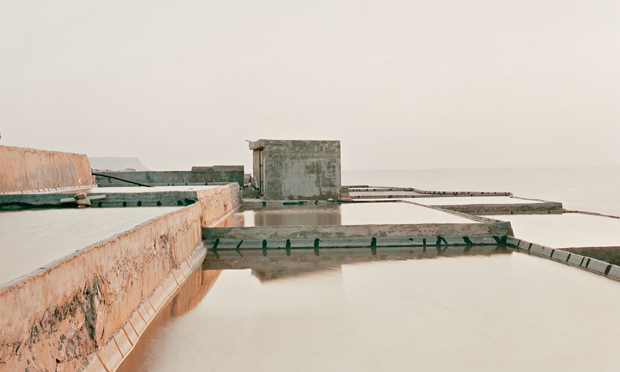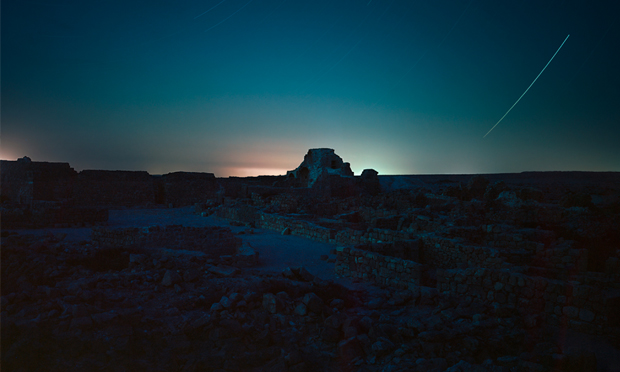Elger Esser, Morgenland @ Parasol Unit: celebrating the ‘heavenly luminosity’ of Lebanon and beyond

Detail from El-Kab II, Egypt (2011). Photograph: Elger Esser.
The Parasol Unit gallery is hosting the first public UK solo show by German photographer Elger Esser. The work he is displaying focuses on a series entitled Morgenland (morning land), captured during his travels through Lebanon, Egypt and Israel between 2004 and 2015.
Esser’s exhibition pays homage to the beauty of landscapes that face, or have historically seen, devastating destruction. These are areas the audience will recognise as being synonymous with conflict, war and violence.
Rather than choosing to photograph destruction directly, Esser delicately captures a serenity within the landscapes of the places he visited. The stillness of the images is at times uneasy for the audience, armed with the knowledge of the unrest that has destroyed similar land nearby. This generates a sense of fearful imminence that makes the work both beautiful and sad.
Some of the images almost look as though they could be archival. Esser has used a range of traditional processes, including prints on silver-coated copperplates which stand on separate plinths in the gallery.

Detail from Enfeh I, Lebanon (2005). Photograph: Elger Esser.
Though there is an other-worldly quality to his work, Esser’s concepts are very much founded in real social commentary.
The image One Sky (2015) is a double-sided print which, on one side shows the view from Lebanon, while the other side presents the same spot viewed from Israel.
Another photograph in the exhibition features the spindly signs of what appear to be electricity pylons. Captured so faintly on the horizon of an image, their skeletal form is a reminder of the impact humans have on the landscape.
Esser’s novel approach to photographing countries we have come to associate with unrest provides a welcome addition to the dialogue around current and historic conflict and the legacy it leaves behind. The quiet dignity afforded Esser’s landscapes, combined with his dreamy palette, give his images a mystical quality. The vast expansive skies he captures seem to bleed into the land or water beneath and take on a heavenly luminosity.
Though Esser was born in Stuttgart, he spent his childhood in Rome which may go some way toward explaining the hazy romanticism of his portraits. He credits paintings of the Romantic period and early nineteenth-century as influences, and this is no great surprise when examining his work.

Detail from Shivta, Israel (2015). Photograph: Elger Esser.
Elger Esser’s ‘Morgenland’ is at the Parasol Unit gallery, 14 Wharf Road, N1 7RW, until 21 May 2017.
